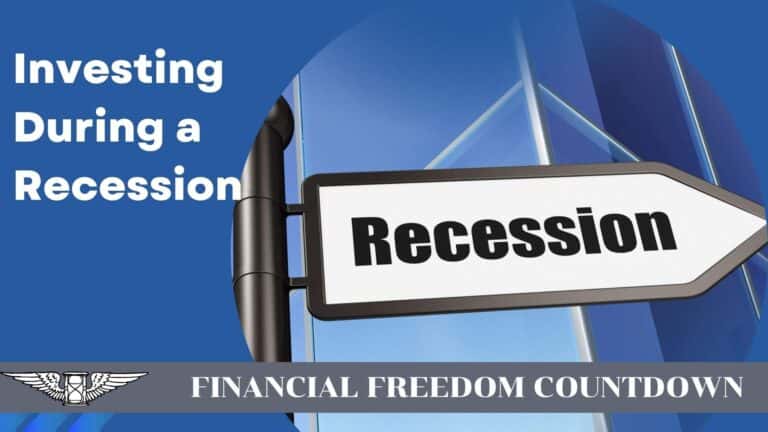Can Pseudonymous Crypto Founders Be Trusted?

For the past decade, Bitcoin has been the best performing asset class growing at an average annualized rate of 230%. It has handily beaten the stock market, real estate, gold, and commodities. Anonymity has been the basis of the cryptocurrency sector from the beginning. Satoshi Nakamoto, a pseudonym, was used by a mysterious individual who invented Bitcoin over a decade ago.
The crypto community believes that Bitcoin would survive the test of time compared to other cryptocurrencies since the founder is unknown. Nakamoto’s pseudonym inspired other cryptocurrency engineers to use screen names. But are there risks with pseudonymous founders in crypto?
The Difference Between Anonymous and Pseudonymous
There is a difference between anonymous and pseudonymous. An anonymous person can speak or operate without being identified because they use multiple identities every time. A pseudonymous person conducts business, but their actual identification and background are still hidden or unknown.
For example, if I’m not required to log in, I can comment on a website article and remain anonymous. If I had to log in using my username, I would be pseudonymous. When I use the same username on different websites, others will identify me by my username, but no one will know my real name or anything about me. Across the internet, I would retain my pseudonymous identity. The pseudonymous identity is similar to selecting a character as your avatar in the metaverse.
The pseudonymous founder of Bitcoin is Satoshi Nakamoto, but no one knows the actual name behind Satoshi. And it’s not even known if Nakamoto was the only founder behind Bitcoin or it was a team of individuals.
Contrast Bitcoin with Ethereum, where everyone knows the team behind ETH and Vitalik Buterin as the face of Ethereum is visible at conferences and vocal on social media.
Pseudonymous Crypto Entities
One of the first lessons most of us learned before investing in anything was to do our due diligence and know everything about the investment. Before investing in stocks, we would research the company, the product, the potential market, and sales. We will learn about the fund manager and their track record before investing in a mutual fund. Similarly, when investing in real estate, we will evaluate the rental property and verify the ownership of the land using a title company.
There are times when we have no idea who is behind a cryptocurrency or project. At first, this did not seem like a problem. It did not bother anyone that the founder of Bitcoin was pseudonymous. Of course, at first, no one took Bitcoin or cryptocurrency seriously until around 2017, when it started to climb in value.
Risks With Pseudonymous Founders in DeFi
The risk with pseudonymous founders is that an unscrupulous person could act like a founder.
DeFi stands for decentralized Finance and is a term that covers financial services such as borrowing money, earning interest, trading assets, or lending money using blockchain technology.
Compared to a cryptocurrency token, DeFi has a broader impact since it attempts to recreate the entire financial system on the blockchain. If someone launches a scam token, only the people who bought the token will lose money. However, since DeFi involves borrowing money, staking, trading assets, and lending, the ramifications of an unscrupulous individual could have broader impacts.
SEC Concerns
The SEC is concerned about any link between pseudonymity and manipulation of the DeFi markets. The DeFi community likes their anonymity, but the Securities Exchange Commission believes investors are more interested in returns. The SEC Commissioner Caroline Crenshaw has published a statement on DeFi Risks, Regulations, and Opportunities asking DeFi participants to address transparency and pseudonymity.
Commissioner Crenshaw also raised concerns about the link between pseudonymity and market manipulation. When market participants operate anonymously, it becomes more challenging to track and counteract manipulation using bots and collusive trading.
She said that since typical signs, such as trading volumes and momentum, become deceptive, investors are most at risk of losing money due to market manipulation. We have heard concerns about price manipulation in the NFT market. No one is sure if there is a genuine demand for a particular NFT or the same individuals buying and selling NFTs between themselves to raise the prices.
Additionally, Commissioner Crenshaw stated that the SEC is also concerned about the use of decentralized exchanges for security-based tokens. She is worried about investors not relying on the same protections they would receive when investing in a regulated exchange.
There are also other risks with pseudonymous founders. These founders could work with dishonest people. She feels that DeFi projects should have conversations with the SEC to find answers to the conundrum of how pseudonymity might satisfy existing regulations.
The Collapse of Wonderland
The SEC commissioner’s fears are not unfounded.
The Wonderland project is an excellent example of how a pseudonymous founder with nothing known about their past could be risky to investors. The investors who called themselves Frog Nation entrusted their money to Wonderland’s CFO and co-founder, known only by the profile name of 0xSifu. Unknown to everyone, 0xSifu had a murky past.
In February 2022, on-chain sleuth, ZachXBT revealed that 0xSifu is Michael Patryn, who had spent 18 months in a U.S. prison for his part in an online identity theft ring in 2005.
According to “The Globe and Mail,” a Canadian news outlet, this founder also had ties with Canada’s infamous crypto exchange QuadrigaCX. In 2013, Mr. Patryn and Gerald Cotten helped launch Quadriga’s trading platform. Since Mr. Cotten died under unusual circumstances in India last November, users have criticized Quadriga. The exchange’s users could not access $250-million in cash and cryptocurrency.
A Canadian court had to appoint an accounting firm to find a resolution. As per the Ontario Securities Commission report, when Quadriga filed for creditor protection, it owed its clients assets worth collectively $215 million. The Monitor only recovered or identified $46 million of assets, leaving a $169 million shortfall.
Before ZachXBT revealed the actual name of 0xSifu, no one had any idea that the person behind the pseudonym was Patryn or that the person had a criminal record. As Frog Nation panicked with a vote to shut down the project, the price of Wonderland token, $TIME, plummeted overnight.
Will Pseudonymity Survive in Crypto?
Proponents of blockchain technology claim that pseudonymity allows individuals to be judged only based on their reputation and technical capabilities, eliminating any biases, resulting in a more equitable marketplace. Given the widespread discrimination in hiring and funding when founders are publicly visible, the anonymous system provides a level playing field to everyone.
Many of the anonymous crypto entrepreneurs have other reasons for hiding their identities. Some might be talented engineers living in regions where working on crypto projects is prohibited. Others fear becoming a target for criminals and kidnappers. On-chain detective ZachXBT who unmasked 0xSifu, is also pseudonymous.
Even celebrities prefer to be pseudonymous in the crypto world. Only recently did everyone learn that the NFT influencer CozomoMedici is Snoop Dogg.
It is not only pseudonymous founders that pose a risk. Several stories about scams had rocked the crypto world even when the founders were not anonymous.
As with any investing, it is essential to understand what the investment is and what the risks associated with it are. There are plenty of cryptocurrencies, DeFi projects, and NFT marketplaces that are transparent with all information. Investors today have a choice between pseudonymous founders and public entities.
The ability to operate anonymously is at the heart of crypto ethos. The crypto community now has to debate if the risks of pseudonymous founders are worth the reward.
Readers, where do you reside on the debate between pseudonymous founders and public founders. Is it a factor when you decide to invest in a new crypto token or protocol?

John Dealbreuin came from a third world country to the US with only $1,000 not knowing anyone; guided by an immigrant dream. In 12 years, he achieved his retirement number.
He started Financial Freedom Countdown to help everyone think differently about their financial challenges and live their best lives. John resides in the San Francisco Bay Area enjoying nature trails and weight training.
Here are his recommended tools
M1 Finance: John compared M1 Finance against Vanguard, Schwab, Fidelity, Wealthfront and Betterment to find the perfect investment platform. He uses it due to zero fees, very low minimums, automated investment with automatic rebalancing. The pre-built asset allocations and fractional shares helps one get started right away.
Personal Capital: This is a free tool John uses to track his net worth on a regular basis and as a retirement planner. It also alerts him wrt hidden fees and has a budget tracker included.
Streitwise is available for accredited and non-accredited investors. They have one of the lowest fees and high “skin in the game,” with over $5M of capital invested by founders in the deals. It is also open to foreign/non-USA investor. Minimum investment is $5,000.
Platforms like Yieldstreet provide investment options in art, legal, structured notes, venture capital, etc. They also have fixed-income portfolios spread across multiple asset classes with a single investment with low minimums of $10,000.






